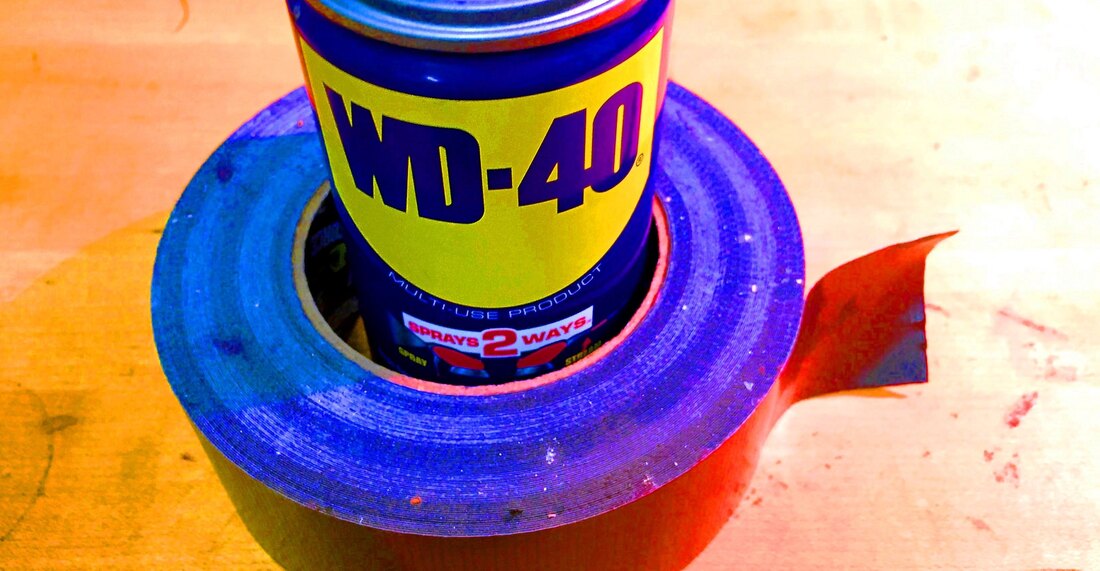|
The old joke is that these two items are all you need to fix anything... If it moves and you don’t want it to, use duct tape. If it doesn’t move and you want it to, use WD-40. I look at “Writing & Running” as the “Duct Tape & WD-40” of creative work: The answer to almost any creative dilemma can usually be summed up as either Write! or Run! At least, as long as we understand the metaphorical meaning of these terms as they relate to any art form… Writing = Capturing an idea and fixing it in time and space by doing creative, authorial work in our chosen field. Other examples of “writing” might include: painting, playwriting, sculpting, screen writing, songwriting, etc.* Running = Unsticking our creative processes by doing a repetitive, relaxing, typically non-thinking activity. Other examples: Hiking, cycling, washing the dishes, mowing the lawn, walking the dog, showering, driving, etc.* [*Please note that none of these is prescriptive. Someone’s “writing” could just as easily be designing a house or creating a lesson plan for an upcoming class. And their “running” could well be shooting hoops, or maybe puttering in the yard. Or any other version of the “creation” mindset and the “recreation” mindset.] In an ideal world we would have adequate amounts of time for both, as they tend to feed into each other: Doing work can make us feel like we deserve some play, and playing can help us generate creative ideas for our work. Although I don’t think of them as “work” and “play.” I tend to view them as simply two different methods of thinking—one more conscious than the other—but equally valuable, and usually synergistic. So…
And on the flip side…
[*BTW, NFW do I think anyone’s actually required to write half a million words be a writer. You write? You’re a writer. Period. Same with the 10,000 hr. rule. But the concept exists for a fundamental reason: We get better at that which we spend time doing. You’d think this would be obvious, but we still see people who spend a lot of time talking about the book they’re going to write… maybe even more time than they actually spend writing. Unless one is a Mozart-level savant, one is unlikely to create great works right off the bat, regardless of age, education, or chosen art form. Everyone seems to grasp this concept with music—no one thinks buying an instrument automatically makes them a good musician without practice—but maybe because we can virtually all “write” to some degree, some people seem to expect that the first things they write will be on par with the work that results from significant practice. This may not always be the case.] There’s a master music educator named Mike Johnston who will sometimes challenge his audience at clinics and workshops to ask him a question which cannot be answered with the word practice. (“How do I get better at double paradiddles?” “Practice!” “How do I incorporate more jazz phrasing into my improvisation?” “Practice!” “How do I play with intensity at lower volumes?” “Practice!”) Same thing with writing. Want to improve some aspect of your craft? Write. Need to remind yourself that you’re a writer? Write. Want to have a completed manuscript to shop around? Write. Need to refill the well with creative ideas to help you accomplish all the above? Run.
0 Comments
Leave a Reply. |
The Craft and Business of
|

 RSS Feed
RSS Feed